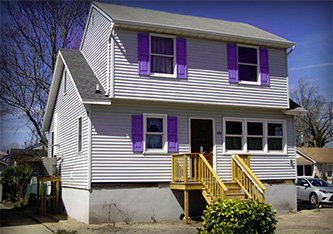
Having just lived through Hurricane Sandy, many residents of New Jersey and the surrounding East Coast states have suddenly found themselves taking a crash course in how to apply for FEMA aid and what happens when you do. Most people don’t want to deal with government agencies on a good day, so it’s no surprise that when dealing with the aftermath of a widespread natural disaster like Hurricane Sandy, many found themselves ill equipped to deal with the pressures of figuring out how to successfully apply for and receive aid. Many had more immediate needs in mind, such as finding clothing and shelter, doing house repairs, or exploring the option of house raising in NJ to ensure they don’t get caught in future tidal flooding.
Thankfully, the reality is that applying for aid to the Federal Emergency Management Agency (FEMA) is easier than you expect. You may be busy coping with securing food, clothing, shelter and transportation, but if you can get access to a phone you can apply.
After you have applied, it is recommended that you create an account at disasterassistance.gov. While such an account is not required, having one will allow you to check the status of your application to FEMA, update your insurance and bank information so FEMA has the latest details, and add or update your contact information. In addition, you can also view and print correspondence from FEMA through the website.
You will get a copy of your application either through the mail or, if you opted to receive it digitally, through email or your disasterassistance.gov account.
When applying, please remember that FEMA assistance is intended for immediate needs or rebuilding and/or repairs not covered by your insurance. If you are one of the many doing house raising in NJ in order to get above future floods, it is unlikely FEMA aid will be available to you for that specific project. Apply, and budget your total funds, accordingly.
FEMA is going to review your documents, including your insurance (both homeowners and flood). Remember that FEMA assistance is intended to cover things your insurance does not cover. You can also expect an inspector to visit your property at some point to review your damage. In most cases, this is a mere formality. Generally speaking, only those trying to game the system need to worry about these inspections.
If you qualify for assistance, you should receive a check or direct deposit from FEMA very quickly, in some cases much quicker than you might expect.
If you do not qualify for assistance, you will receive a letter from FEMA explaining the reason for your denial. You do have the right to appeal if you disagree with the reason why you were denied.
When Mother Nature strikes, many will be inclined to look at the big picture first, thinking about house raising New Jersey, restorations, or even selling their home entirely. That approach is putting the cart before the horse. The first thing to do in the case of a federal disaster is to apply for aid.
